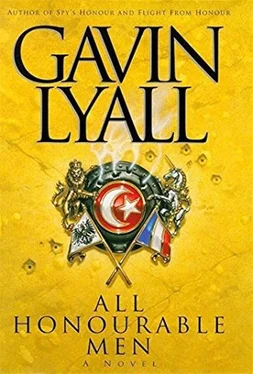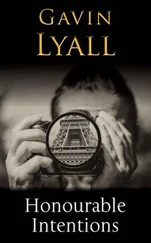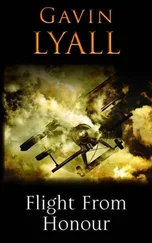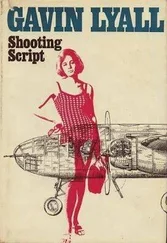Gavin Lyall - All Honourable Men
Здесь есть возможность читать онлайн «Gavin Lyall - All Honourable Men» весь текст электронной книги совершенно бесплатно (целиком полную версию без сокращений). В некоторых случаях можно слушать аудио, скачать через торрент в формате fb2 и присутствует краткое содержание. Год выпуска: 1997, Издательство: Bloomsbury Publishing, Жанр: Шпионский детектив, Исторический детектив, на английском языке. Описание произведения, (предисловие) а так же отзывы посетителей доступны на портале библиотеки ЛибКат.
- Название:All Honourable Men
- Автор:
- Издательство:Bloomsbury Publishing
- Жанр:
- Год:1997
- ISBN:нет данных
- Рейтинг книги:5 / 5. Голосов: 1
-
Избранное:Добавить в избранное
- Отзывы:
-
Ваша оценка:
- 100
- 1
- 2
- 3
- 4
- 5
All Honourable Men: краткое содержание, описание и аннотация
Предлагаем к чтению аннотацию, описание, краткое содержание или предисловие (зависит от того, что написал сам автор книги «All Honourable Men»). Если вы не нашли необходимую информацию о книге — напишите в комментариях, мы постараемся отыскать её.
All Honourable Men — читать онлайн бесплатно полную книгу (весь текст) целиком
Ниже представлен текст книги, разбитый по страницам. Система сохранения места последней прочитанной страницы, позволяет с удобством читать онлайн бесплатно книгу «All Honourable Men», без необходимости каждый раз заново искать на чём Вы остановились. Поставьте закладку, и сможете в любой момент перейти на страницу, на которой закончили чтение.
Интервал:
Закладка:
Gunther swallowed. “Others have more money.” Of course he would claim he was selling, that was no crime. And the ministries were certainly richer than the Bureau. And Gunther had been in business longer than the Bureau: he must still have other clients in London.
Gunther added: “I have an Italian naval code,” before restocking his mouth.
“Yes? When are they due to change it?” Gunther wouldn’t cheat by selling the same information twice: the code to you, then the fact that you’d got it to the Italians. But he’d sell a code that was about to be abandoned. It was a fine line, and a funny-peculiar one, but he trod it religiously in a world where heresy was a capital offence.
Gunther grinned, shrugged, and suggested: “The Schlieffen Plan? Do you know the latest amendments of that?”
“If you can prove it really isn’t just a staff exercise,” Ranklin said, “we might swap it for something about the Spanish Royal Family.” Then his bacon and eggs arrived and the conversation became just nods and grunts, finely tuned to mean “Everybody knows that” or “You’re joking”. Ranklin was now convinced that Gunther hadn’t anything serious to offer and was mainly trying to find out what the Bureau knew or – just as important – wanted to know.
So when they had finished, and called for a fresh pot of coffee, Ranklin asked bluntly: “So what are you doing here now?”
Gunther’s eyebrows rose from his thick spectacles in mock surprise. “Selling cigars, it is my business. Have one.” He opened a silver pocket case. From their looks, they might have served to take away the taste of an over-hot curry, but not just after breakfast. Gunther lit one himself.
The hotel didn’t exactly allow smoking at breakfast, but it didn’t want to alienate what few clients it had in the low season. Anyway, the only others left in the room were foreign tourists waiting hopefully for the fog to clear. So Ranklin lit a cigarette.
“And how about the Eastern Question?”
“Ach – only you English could have such a phrase, that can mean everything or nothing. No, I have nothing from there. But Serbia, I hope soon to have some most interesting news from Belgrade. You must remember to call me . . .” The conversation wound down slowly until, at half past nine, Gunther heaved himself to his feet. “Now, you will excuse me, I am going home today and first I must observe the English custom and ‘have a breath of fresh air’.” He chuckled as he gestured at the world beyond the windows.
“I’ll come out with you.”
Gunther had brought his cape downstairs with him and they stood on the front steps looking out on nothingness the colour of dirty washing-up water. But not silence: Northumberland Avenue was a cacophony of honking horns, clattering hooves and jingling harness. Lamps glowed, crawled past attached to the dim shapes of cabs and taxies, and vanished. On the pavement, pedestrians moved hesitantly, unbalanced, staying close to the walls and peering at the hotel name to locate themselves. One man was standing under the glow of a street lamp a few feet away, trying to read a guide-book map.
“A true London fog,” Gunther said, as if he were viewing the Taj Mahal. Then he turned to shake hands. “You have come far – in only a year, is it? When I hear of you – I hear very little, I assure you – I think i knew him when he had just begun.’”
“You tried to kill us.”
“I did not see you as a future customer. Also – I think violence is not a proper part of our trade. I gave you a bad example, and I hear . . . But probably I am wrong.” His spectacles gleamed cheerily as the yellow lamplight caught the droplets forming on them. “Au revoir.”
Ranklin took a couple of steps, then paused, professionally interested to see if he could spot the Special Branch man who should be following. Gunther had paused, too, wiping his spectacles under the lamplight.
The man with the guide-book turned, put a pistol to Gunther’s face and fired. The back of Gunther’s head burst and his hat fell off soggily. The man ran, disappearing in three steps.
Ranklin caught Gunther before he hit the pavement, but he was too heavy. Suddenly there was another man, helping ease him down, then blowing a fierce shriek on a whistle, but Gunther didn’t react to the sudden close noise. His eyes were already wide and unmoving in a bloody, sooty mask of gunsmoke. Ranklin felt for the pulse in the thick neck, then stood up.
Already the doorman was gawping, pedestrians were stopping. Ranklin said loudly: “Get him inside, get a doctor, an ambulance. Quick !” And having stirred them into useless babble and motion, vanished himself.
* * *
Ranklin blundered his way back to Whitehall Court, numb, shivering with shock and simple disbelief. Life could seem so strong. A growing plant could crack through stone; men clung to life with the ghastliest of wounds. So how could it be so fragile? You snapped off a flower head, unthinking. A man turned away and died, from just two little bullets.
* * *
They met in a small room in a Pall Mall club, a good place for a private meeting on virtually neutral ground. The rest of the time, it seemed to be the unread part of the library: sets of thick books that must represent lifetimes of patient work. Had they died happy?
He found himself explaining for the umpteenth time: “If I had stayed, the Branch officer would have hung on to me, at least as a witness. I was quite prepared to explain myself, as I did later to Detective Sergeant Dix-” He nodded to a solid, placid and heavily moustached man being self-effacing on the outskirts of the seated group. “But not there and then, not in public.”
“But also,” the man from the Home Office said, “it seems that you made no attempt to catch the assassin.”
“He’d vanished in the fog. I had no more chance of grabbing him than the Branch officer had,” Ranklin pointed out.
“The officer was supposed to be following van der Brock, not protecting him,” Sir Basil Thomson said. On looks alone, his long face kept a funeral parlour and his nose a pub; in fact, he headed the Yard’s Criminal Investigation Department and Special Branch – effectively, all its plainclothes detectives.
The Home Office man frowned. He was young and trying – too hard – to keep his end up in grand and mysterious company. He was also the only one who was going to have to write a report; Sir Basil, the Commander and Major Kell of the counter-espionage service were all their own bosses.
He said: “Nobody seems to have thought to be armed – except the assassin.”
“It has never been Government policy that policemen in Britain should normally wear sidearms,” Sir Basil said. “I cannot, of course, speak for the Secret Service.” His past experience of the Bureau, particularly an occasion when they had certainly been armed, had left him officially Deeply Concerned and privately Bloody Furious.
“Sorry,” Ranklin said, “I hadn’t got a gun, either. Not that I’d have started blazing away in that fog anyway.”
“Delighted to hear it,” Sir Basil said coldly.
“And we don’t even have a proper description of the man, just -” the Home Office man turned a copy of the Evening Standard on the table to read from the front page “- ‘about five feet six tall, long dark overcoat, face obscured by a scarf.”
“Like most sensible people out in that fog,” Kell observed.
The Commander grunted and said: “Professional,” and everyone but the Home Office nodded sagely. He blinked at them and tried another tack: “Then was this van der Brock known to have had any enemies?”
Now everyone smiled; the Commander even chuckled, but left the answer to Kell, who said: “He was a notorious seller of state secrets, so at one time or another every Power in Europe had reason to want him dead. However, I believe he was so even-handed that each Power expected he’d be selling to them next week, so let him live. Until today.”
Читать дальшеИнтервал:
Закладка:
Похожие книги на «All Honourable Men»
Представляем Вашему вниманию похожие книги на «All Honourable Men» списком для выбора. Мы отобрали схожую по названию и смыслу литературу в надежде предоставить читателям больше вариантов отыскать новые, интересные, ещё непрочитанные произведения.
Обсуждение, отзывы о книге «All Honourable Men» и просто собственные мнения читателей. Оставьте ваши комментарии, напишите, что Вы думаете о произведении, его смысле или главных героях. Укажите что конкретно понравилось, а что нет, и почему Вы так считаете.











